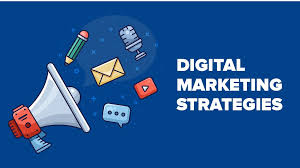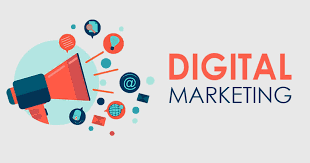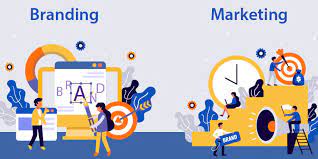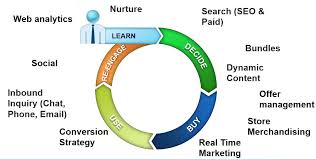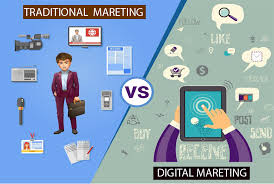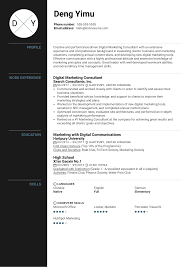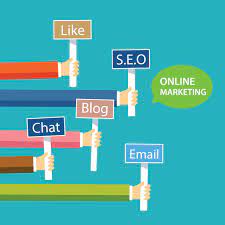The Power of Digital Marketing for Startups
Startups face unique challenges when it comes to establishing their brand and reaching their target audience. In today’s digital age, leveraging the power of digital marketing can be a game-changer for startups looking to make a mark in the competitive business landscape.
Benefits of Digital Marketing for Startups
Cost-Effective: Traditional marketing methods can be costly and may not yield the desired results for startups with limited budgets. Digital marketing offers cost-effective solutions such as social media advertising, email marketing, and search engine optimisation (SEO) that can reach a wider audience without breaking the bank.
Targeted Reach: With digital marketing, startups can target specific demographics, interests, and behaviours of their ideal customers. This targeted approach ensures that marketing efforts are focused on reaching those most likely to be interested in the product or service being offered.
Measurable Results: One of the key advantages of digital marketing is the ability to track and measure results in real-time. Startups can analyse data from campaigns to understand what is working well and make adjustments to optimise performance, leading to better ROI.
Key Strategies for Startup Digital Marketing
a. Content Marketing: Creating valuable and engaging content that resonates with your target audience is essential for building brand awareness and credibility.
b. Social Media Marketing: Utilising social media platforms to connect with customers, promote products/services, and drive engagement can help startups build a loyal following.
c. Search Engine Optimisation (SEO): Optimising website content for search engines can improve visibility in search results, driving organic traffic to your site.
Conclusion
Digital marketing presents startups with a plethora of opportunities to grow their brand presence, engage with customers, and drive business growth. By implementing effective digital marketing strategies tailored to their unique needs, startups can level the playing field with established competitors and carve out a successful niche in their industry.
Top 9 Frequently Asked Questions About Digital Marketing for Startups
- Which digital marketing strategy is best?
- What are the 4 P’s of digital marketing?
- How do you create a digital marketing strategy for a startup?
- How to start digital marketing with no money?
- How do I market my startup?
- What are the 3 types of digital marketing?
- Is digital marketing good for startups?
- How digital marketing is very useful for startups?
- Which digital marketing is best for beginners?
Which digital marketing strategy is best?
When it comes to digital marketing for startups, the question of which strategy is best often arises. The truth is, there is no one-size-fits-all answer to this question. The most effective digital marketing strategy for a startup depends on various factors such as the target audience, industry niche, budget constraints, and overall business goals. It’s essential for startups to conduct thorough research, test different strategies, and continuously analyse results to determine which approach works best for their specific needs and objectives. Flexibility and adaptability are key in navigating the dynamic landscape of digital marketing to find the strategy that yields the most significant impact for a startup’s growth and success.
What are the 4 P’s of digital marketing?
In the realm of digital marketing for startups, a frequently asked question revolves around the concept of the 4 P’s of digital marketing. The 4 P’s refer to Product, Price, Place, and Promotion – key elements that form the foundation of any successful marketing strategy. For startups navigating the digital landscape, understanding how these pillars interconnect and influence one another is crucial in creating a cohesive and effective digital marketing plan. By strategically addressing each of the 4 P’s, startups can enhance their online presence, engage with their target audience, and drive sustainable growth in a competitive market environment.
How do you create a digital marketing strategy for a startup?
Creating a digital marketing strategy for a startup involves careful planning and consideration of the business’s goals, target audience, and available resources. To begin, it is essential to conduct thorough market research to understand the competitive landscape and identify the needs and preferences of the target market. Next, defining clear objectives and key performance indicators (KPIs) will help guide the strategy and measure its effectiveness. Developing a strong brand identity and messaging that resonates with the target audience is crucial for building brand awareness and credibility. Utilising a mix of digital marketing channels such as social media, content marketing, SEO, and email campaigns can help startups reach their audience effectively. Regularly monitoring and analysing campaign performance data allows for adjustments to be made in real-time to optimise results and achieve desired outcomes.
How to start digital marketing with no money?
For startups looking to kickstart their digital marketing efforts with limited financial resources, there are several cost-effective strategies to consider. Firstly, leveraging social media platforms such as Facebook, Instagram, and Twitter can provide a free and effective way to engage with your target audience. Creating compelling and shareable content can help increase brand visibility without the need for a significant budget. Additionally, utilising search engine optimisation (SEO) techniques to improve your website’s visibility in organic search results can drive traffic without requiring a financial investment. Partnering with influencers or collaborating with other businesses for cross-promotion can also be a valuable strategy for reaching a wider audience at minimal cost. By focusing on creativity, resourcefulness, and strategic planning, startups can effectively start their digital marketing journey even with limited financial resources.
How do I market my startup?
Marketing a startup effectively requires a strategic approach that leverages the power of digital tools and platforms to reach and engage with your target audience. To market your startup successfully, you should start by defining your target market, understanding their needs and preferences, and crafting a compelling brand story that resonates with them. Utilising digital marketing channels such as social media, content marketing, email campaigns, and search engine optimisation can help you create awareness, drive traffic to your website, and generate leads. Consistent monitoring and analysis of your marketing efforts are crucial to refining your strategies for optimal results and sustainable growth.
What are the 3 types of digital marketing?
In the realm of digital marketing for startups, understanding the three main types of digital marketing is crucial for crafting an effective online strategy. The three key types are search engine optimisation (SEO), social media marketing, and pay-per-click (PPC) advertising. SEO focuses on improving a website’s visibility in search engine results to drive organic traffic, while social media marketing involves leveraging platforms like Facebook, Instagram, and Twitter to engage with audiences and promote products/services. PPC advertising allows startups to target specific audiences with paid ads that appear in search engine results or on social media platforms. By utilising these three types of digital marketing in tandem, startups can enhance their online presence and reach their target customers effectively.
Is digital marketing good for startups?
The question of whether digital marketing is beneficial for startups is a common one, and the answer is a resounding yes. Digital marketing offers startups cost-effective solutions to establish their brand presence, reach their target audience, and drive business growth in today’s competitive landscape. With its ability to provide targeted reach, measurable results, and a range of strategies such as content marketing, social media marketing, and search engine optimisation (SEO), digital marketing empowers startups to connect with their ideal customers, build credibility, and achieve tangible results. Embracing digital marketing can be a game-changer for startups looking to make a mark and thrive in the digital age.
How digital marketing is very useful for startups?
Digital marketing is incredibly beneficial for startups due to its cost-effectiveness, targeted reach, and measurable results. Unlike traditional marketing methods that can be expensive and may not yield the desired outcomes for startups with limited budgets, digital marketing offers affordable solutions such as social media advertising, email marketing, and SEO that can reach a wider audience without significant financial investment. Moreover, digital marketing allows startups to target specific demographics, interests, and behaviours of their ideal customers, ensuring that their marketing efforts are focused on reaching those most likely to be interested in their products or services. Additionally, the ability to track and measure results in real-time enables startups to analyse campaign performance and make data-driven decisions to optimise their strategies for better return on investment.
Which digital marketing is best for beginners?
When starting out in the world of digital marketing, beginners often wonder which strategies are best suited for their needs. For startups looking to make a strong impact with limited resources, it is recommended to focus on foundational tactics such as social media marketing, content marketing, and search engine optimisation (SEO). These beginner-friendly digital marketing approaches can help startups build brand awareness, engage with their target audience, and drive organic traffic to their website. By mastering these fundamental strategies, beginners can establish a solid foundation for their digital marketing efforts and pave the way for future success in the competitive online landscape.

